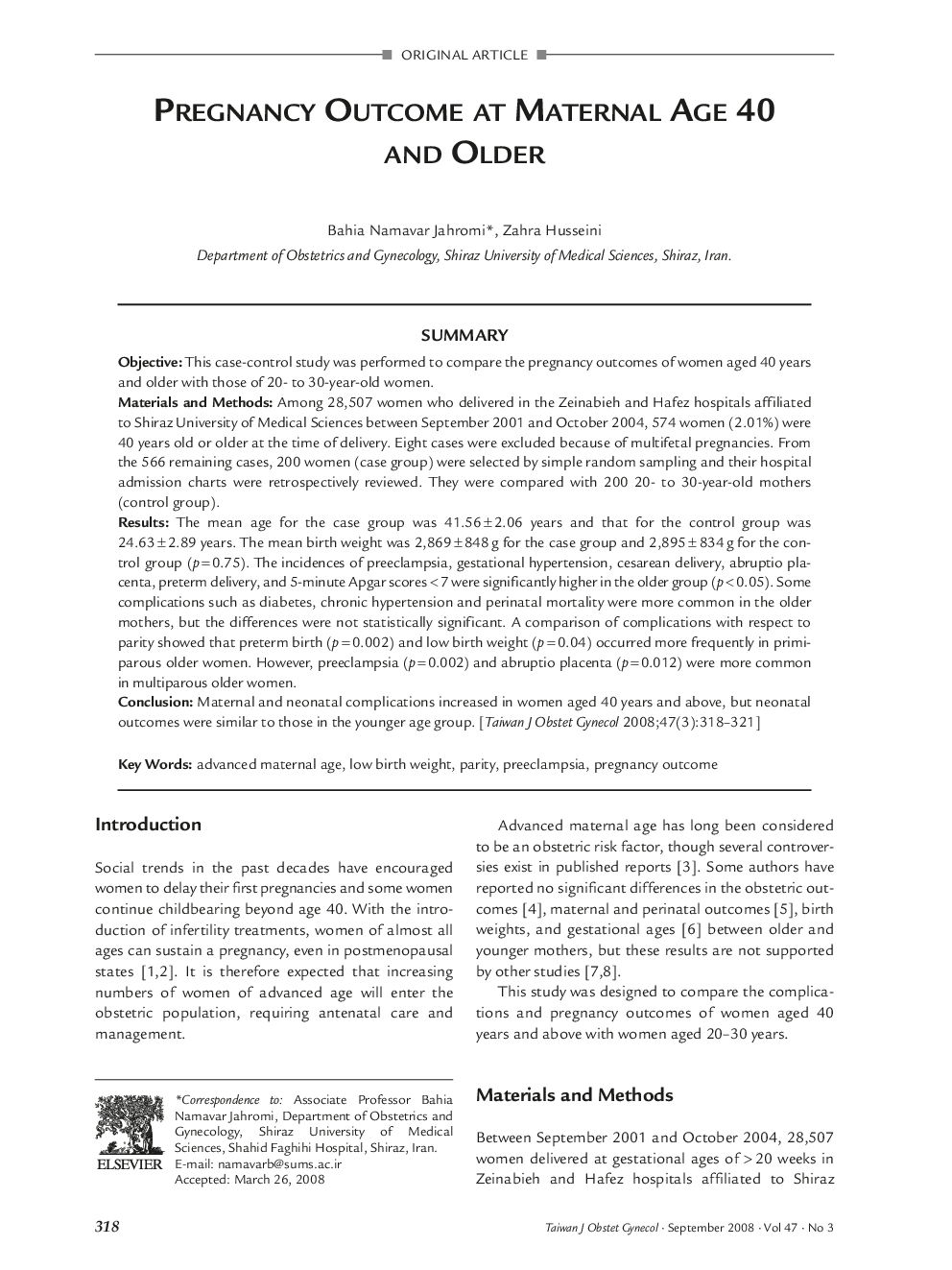| Article ID | Journal | Published Year | Pages | File Type |
|---|---|---|---|---|
| 3975946 | Taiwanese Journal of Obstetrics and Gynecology | 2008 | 4 Pages |
SummaryObjectiveThis case-control study was performed to compare the pregnancy outcomes of women aged 40 years and older with those of 20- to 30-year-old women.Materials and MethodsAmong 28,507 women who delivered in the Zeinabieh and Hafez hospitals affiliated to Shiraz University of Medical Sciences between September 2001 and October 2004, 574 women (2.01%) were 40 years old or older at the time of delivery. Eight cases were excluded because of multifetal pregnancies. From the 566 remaining cases, 200 women (case group) were selected by simple random sampling and their hospital admission charts were retrospectively reviewed. They were compared with 200 20- to 30-year-old mothers (control group).ResultsThe mean age for the case group was 41.56 ± 2.06 years and that for the control group was 24.63 ± 2.89 years. The mean birth weight was 2,869 ± 848 g for the case group and 2,895 ± 834 g for the control group (p = 0.75). The incidences of preeclampsia, gestational hypertension, cesarean delivery, abruptio placenta, preterm delivery, and 5-minute Apgar scores < 7 were significantly higher in the older group (p < 0.05). Some complications such as diabetes, chronic hypertension and perinatal mortality were more common in the older mothers, but the differences were not statistically significant. A comparison of complications with respect to parity showed that preterm birth (p = 0.002) and low birth weight (p = 0.04) occurred more frequently in primiparous older women. However, preeclampsia (p = 0.002) and abruptio placenta (p = 0.012) were more common in multiparous older women.ConclusionMaternal and neonatal complications increased in women aged 40 years and above, but neonatal outcomes were similar to those in the younger age group.
